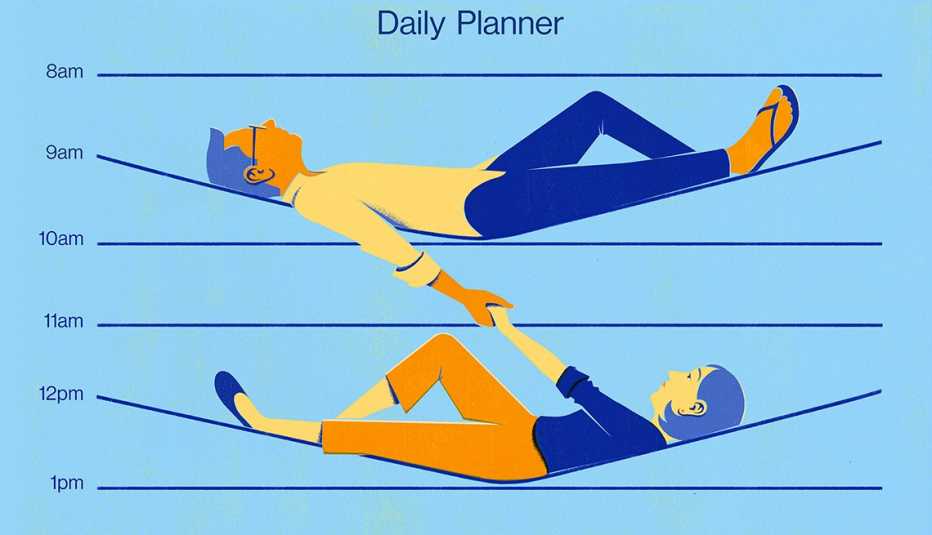AARP Hearing Center


When Gwen Rowe’s son, August, left for college last fall, she and her husband, Tom, suddenly had a spare bedroom and an empty schedule. There were no more choral rehearsals to drive to or bag lunches to pack, recalls Rowe, 56. At long last, she thought, freedom.
When Rowe pictured her empty-nest life, she says, “I had imagined Tom and I might travel, explore different cities while working remotely.” Or maybe, she thought, the couple would practice the Argentine tango, as they had before their son was born. With their own parents getting older, the Rowes talked about downsizing from their three-story house into something more accessible. But then, what if August wanted to move back home later on?
Instead of feeling liberated, the Rowes found themselves frozen with indecision. “We’ve had a hard time figuring out where to turn next,” Gwen says.
It’s a little-discussed pitfall of the newly empty nest: In addition to missing their children, many parents report experiencing confusion and anxiety about their own lives. They feel stuck and unable to plan.
Jim Burns, now 69, went through it in his mid-50s. A pastoral counselor, Burns had raised three children with his wife, Cathy, in their Dana Point, California, home. When their last child moved out, Burns recalls, the couple felt “desperation.”
“For 23 years, our identity was wrapped around being parents,” he explains. “We had to reinvent our own life. How on earth were we going to do that?” As part of that reinvention, Burns wrote the book Finding Joy in the Empty Nest: Discover Purpose and Passion in the Next Phase of Life.





































































More From AARP
Teens Need Space to Grow
College dean's advice to parents
What to Expect Before Your New Grad Leaves for College
As your student gets ready to leave home, watch for stress, anxiety and need for independenceHow to Reconcile With Your Estranged Adult Child
Try these steps to repair a broken relationship